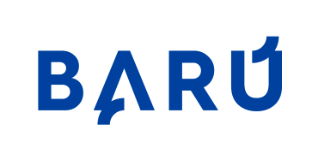- About Us
- Our Activities
- Internship Expedition
- Talent Gate
- Consultancy Services
- Graduate Information System
- Useful Links
-
Alumni Communication Commission
- Faculty of Literature
- Faculty of Education
- Faculty of Science
- Faculty of Economics and Administrative Sciences
- Faculty of Engineering Architecture and Design
- Faculty of Islamic Sciences
- Faculty of Health Sciences
- Faculty of Sport Sciences
- Faculty of Forestry
- Vocational School of Health Services
- Vocational School of Bartin
- Vocational School of Ulus
- Contact
- Contact Form

Success in Interviews
Bartın University Career Planning Application and Research Center provides various tips to help students and graduates in the important area of interviews, which is crucial for job and internship applications. The aim is to provide important guidance on the path to standing out as a candidate by demonstrating a conscious attitude during the interview process. The section includes recommendations on how to dress appropriately for an interview, the topics candidates should consider before the interview, the types of questions they may encounter, and the key points to pay attention to during different types of interviews. The purpose of this section is to enhance candidates' interview success.
Prepare for the Interview
Conduct Research:
- Employer:
- Learn about the company's operations.
- Gather information about the industry in which the job is related.
- Familiarize yourself with their products/customers.
- Read about the company's reviews and feedback.
- If applicable, find out about the company's awards and corporate social responsibility projects.
- Research the company's competitors.
- Explore the company's recent projects and the industry's trends.
Research Options:
- LinkedIn.com (to review the resumes of employers and top-level executives in the company)
- The company's official website (to learn about the company's vision, mission, establishment, development, products, etc.)
Know Yourself:
- What skills/experiences can you offer to an employer?
- How can the skills/experiences you offer align with the position you are applying for?
- Prepare a positive outlook for any potential negative situation. Instead of making excuses, redirect the employer's attention to your other skills and abilities that can capture their interest. For example, if you lack relevant experience, highlight your skills gained through school projects, organizations you have been involved in, and volunteer work.
Dress for Success:
- Professional Attire (Interview Outfit)
During the Interview
Being prepared is the key to every interview. Being prepared requires researching the company and the position you are applying for. To have complete control over the process, you should also be aware of the situations that may arise during the interview.
Introduction: Make a Good Impression!
- First impressions can determine the course of the entire interview. When the interviewer comes to the waiting room and calls your name, confidently approach them, make eye contact, extend your hand for a handshake, and say, "Hello, I'm (Your Name)."
Additional Things to Do:
- Be on time! Arrive at least 15 minutes early.
- Avoid chewing gum and excessive use of perfume/cologne.
- Turn off your phone.
Dialogue: The Interview Itself
Currently, the most common type of interview is the "Behavioral Interview." In this popular interview method, questions are based on the idea that "the best predictor of future behavior is past behavior." For example, if you demonstrated initiative in a class project, it is likely that you will demonstrate initiative in the company as well. Therefore, if an employer wants to hire a candidate with leadership skills, they will ask questions like, "Describe a situation where you took on a leadership responsibility."
For such questions, you should respond with a specific example that demonstrates the desired skill the employer is looking for, using the "S.T.A.R." method to plan your answer:
- S: Situation - Describe the situation you were in.
- T: Task - Explain the task you needed to accomplish.
- A: Action - Describe the actions you took to complete the task.
- R: Result - Don't forget to tell them the outcome of the task!
However, regardless of the questions asked and the type of interview, there are three important points that employers want to know:
- Are you capable enough to perform the job?
- Are you enthusiastic enough to perform the job?
- Can you fit into their team and add value?
Closing: Seal the Deal!
Never forget that the interview is not over when the interviewer finishes asking questions. Always conclude your interviews by following these three steps:
- Prepare questions about the position and the company that you have previously prepared.
- Collect business cards from all interviewers.
- Show your interest and compatibility!
After the Interview
Follow the 4N1K method:
- Who to Contact?
- Reach out to every person you met, either in person or via phone.
- What to Do?
- Express your gratitude and thanks for the opportunity.
- Summarize why you think the position is an excellent fit for you.
- Be unique!
- When to Do It?
- Within the following days after your interview (within two business days).
- This is a perfect opportunity to reinforce what you said during the interview and add anything you may have forgotten.
- Where to Do It?
- It is best to send your thoughts in an email.
- Why Do It?
- Stand out from other candidates by creating a flawless "last impression"!
Dos and Don'ts
- Acquire knowledge about the company.
- Don't be late.
- Avoid appearing disinterested.
- Define what you have to offer.
- Provide examples.
- Avoid dressing unprofessionally.
- Learn how to reach your destination.
- Enhance your closing.
- Follow up on the interview (using the 4N1K method).


 Türkçe
Türkçe